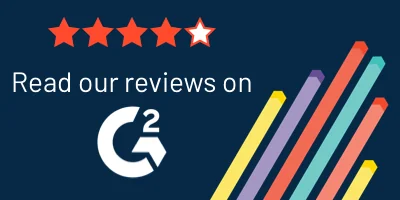What were you doing four years ago?
Perhaps in 2017 you were, like many people, entirely unaware of the way that containers and cloud computing would take the world by storm. Back then, there were companies just taking baby steps towards containerization – don’t feel bad if you were running one container per virtual machine, because many people were. And even more weren’t using containers at all, or were squinting at their monoliths wondering if there was a reason to change their architectures.
Back then one of the most common questions to hear from potential container users was which orchestrator to use. There were communities coming together in big numbers around Docker and around Kubernetes, but arguably Mesos/Marathon had some of the biggest deployments. It’s amazing how dominant Kubernetes has become in such a short period of time. My bet is that this dominance is related to the massive community that contributes to Kubernetes and other cloud native projects. The CNCF 2020 report shows that 110,000 people from all around the world contributed to these projects last year.
Aqua was starting to establish itself as a name in the container security field. Back then, our marketing team found that going to the “traditional” security industry events was challenging, because of the number of attendees who were unfamiliar with the world of Docker, Kubernetes, et al. Yes, we really did have people think this was about locks on those big metal boxes that carry goods on ships.
I have a very clear recollection of what was happening in the first quarter of 2017, because I was making career decisions of my own. Coming to the end of a road with a container scaling startup that ran out of money, I was looking for my next opportunity and was lucky enough to be introduced to Dror Davidoff, Aqua’s CEO and co-founder. He just happened to be in London that Friday, and we met over a cup of tea. The following Tuesday I was in Tel Aviv to meet CTO and co-founder Amir Jerbi, and I realised this was a fantastic team with a terrific product, and a great opportunity for me.
In the cloud native world the majority of the infrastructure is written as open source code, and my role at Aqua has always involved talking about and explaining these open source elements – for example, explaining what a container is by live-coding one in a few lines of Go. If you understand how a technology works, that’s key to understanding how it could potentially be attacked, and what’s required to secure it.
Over time we introduced open source projects to Aqua’s portfolio, starting with kube-bench, so that we could share useful tools with the community, while complementing our commercial products. Open source has become an increasingly important part of Aqua’s activities over the years, and an important engine for innovation as well as providing some core components for the paid-for products. This put Aqua in a unique position – our sales team reports that our open source projects give us an advantage when it comes to a head-to-head assessment against our main competitors. Security companies don’t typically have a genuine investment in open source the way we do.
I’ve had four amazing years with my friends at Aqua, but I’ve realised that it’s time for a new adventure. I’m incredibly proud of all my colleagues, especially the work my team has done and continues to do on our open source projects like Tracee, Starboard, Trivy, kube-bench and kube-hunter.
Going forward the open source engineering team is going to be headed up by Itay Shakury, who you may already know as a CNCF Ambassador and leader in the Tel Aviv cloud native community. Dror and Amir have invited me to stay in touch as a member of Aqua’s Advisory Board, and I’ll also be carrying on with the CNCF Technical Oversight Committee, and participating in the community there. I’m leaving the company at a time where it has great momentum, a solid pipeline of innovation, and a wonderful customer community as well as open source users and contributors, and the focus on and investment in open source will continue.
Aqua’s future is bright and I will be cheering my former colleagues from the sidelines as they go on to even bigger success.

